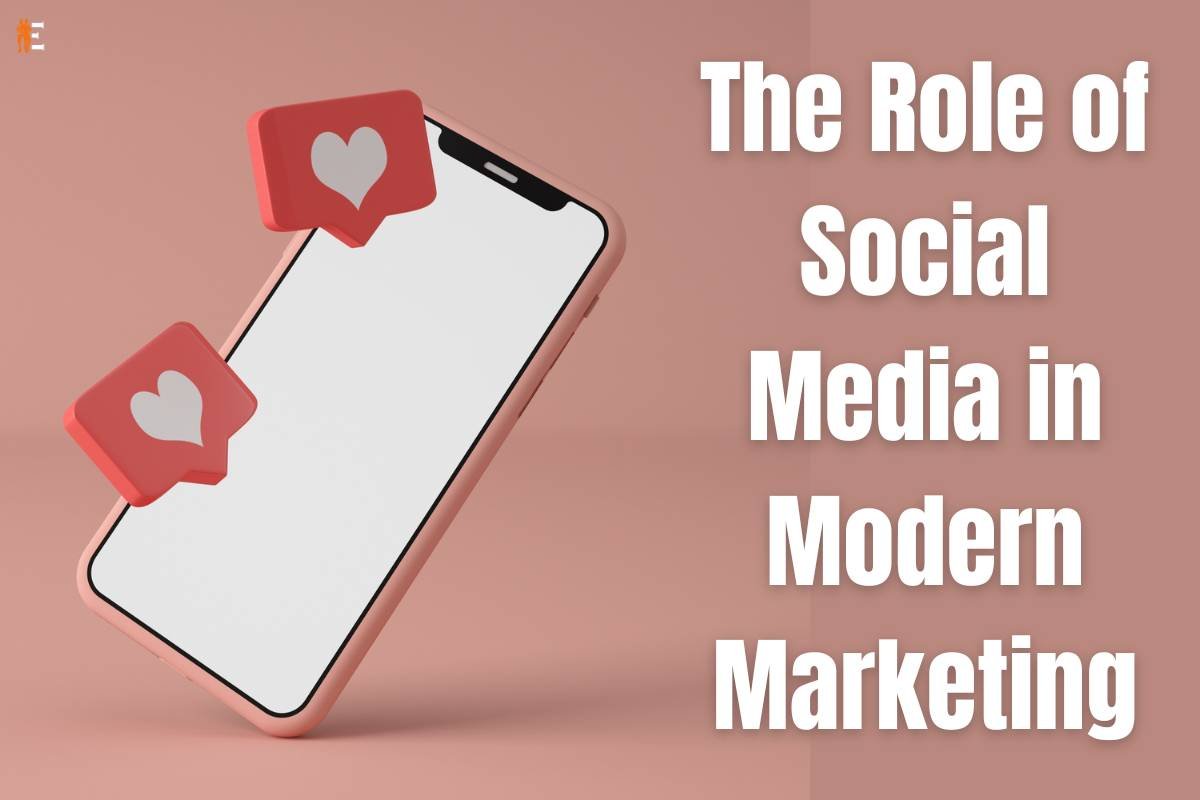Social Media in modern marketing plays an important role, Social media itself is an example of modern age marketing. Every person these days is on social media. Age, caste, gender, rich, poor etc do not matter in it. Every person on social media is the same. Of course the blue tick makes the difference, but not all are influencers. The reach of social media is extensive, so is the power in today’s digital era.
If used correctly, according to the algorithms when it comes to businesses or brands, the reach and ultimately the sales figures surge up as per the forecasts. The revenue will increase than expected too. Presence on social media has become a bit more important these days, than a website.
Of course, a website is important, as it is the very foundation of a brand. But consumers, while judging the brand, take a look at the website and the social media presence inevitably. So, it is safe to say that social media in modern marketing plays an important role, which improves the brand awareness or keeps on reminding about it.
So we are here to talk about the role of social media in modern marketing. Read on:
I. Social Media: An Evolution
1. Direct Customer Engagement:
Social media in modern marketing offers vaious platforms. A direct and real-time connection with customers, enabling brands to receive feedback, address concerns, and build relationships. This engagement fosters brand loyalty and customer trust.
2. Targeted Marketing:

Advanced algorithms allow brands to target specific demographics, ensuring their content reaches the right audience. This precision significantly improves the efficiency of social media marketing campaigns, while expanding the reach too.
3. Brand Awareness:
Social media provides a global stage for brand exposure. Through engaging content, brands can reach a vast audience, creating brand awareness that was previously unattainable without substantial investment. Spreading awareness whether a new or an old brand, is too vital. It keeps the brand in the conscience of people.
4. Content Virality:
The viral nature of social media enables content to spread rapidly. Engaging and shareable content can lead to exponential reach, driving organic growth. The key to gain that virality is relatable content with a touch of humor or emotional touch.
5. Data tracking:
Platforms offer robust analytics tools, providing insights into audience behavior, engagement metrics, and campaign performance. This data-driven approach enhances decision-making. Social media in modern marketing is all about analyzing the viewers behavior and setting targets accordingly.
II. Gaining a Competitive Advantage: Strategic Social Media Marketing
To stand out in the digital crowd, brands must strategically harness the power of social media in modern marketing. Here’s how:
1. Clear Objectives:
Define precise goals—be it increased brand awareness, lead generation, or customer engagement. Tailor strategies to align with these objectives. Well defined objectives helps the brand to get a roadmap towards growth.
2. Audience Understanding:
Thoroughly understand the target audience’s preferences, behaviors, and pain points. Craft content that resonates with them. Understanding the nerve of audiences is the core of social media in modern marketing.
3. Platform Selection:
Different platforms cater to diverse audiences. Select platforms aligning with your target demographic to maximize impact.
4. Creative Content:
Generate captivating content—videos, infographics, and stories—that grabs attention and encourages sharing. Visual content has become the necessity in today’s social media in modern marketing.
5. Consistency is Key:
Consistent posting establishes a brand’s presence. Regular updates maintain audience interest and show commitment.
III. The Consistency Conundrum: Sustaining Engagement
Brands must maintain a consistent social media posting schedule to keep their audience engaged and maintain relevance. Here’s why:

1. Audience Expectations:
Regular updates align with audience expectations, preventing loss of interest and ensuring the brand remains top-of-mind.
2. Algorithmic Favor:
Most platforms favor consistent content providers, increasing visibility and discoverability.
3. Narrative Building:
Regular posting allows for coherent storytelling. Brands can weave narratives that captivate audiences over time.
4. Competitor Parity:
Consistency ensures a brand keeps up with competitors who are actively engaging their audience.
IV. Elevating Reach: Unique Steps for New Brands
New brands can maximize reach on social media platforms through innovative approaches:
1. Influencer Collaborations:
Partner with influencers relevant to the brand. Their endorsement can introduce the brand to a wider, already-engaged audience.
2. User-Generated Content:
Encourage users to create content featuring the brand. This fosters a sense of community and expands reach organically.
3. Contests and Giveaways:
Holding contests encourages user participation and sharing, leading to increased visibility.
V. Crafting Catchy Content: Catering to Short Attention Spans
In an era of fleeting attention spans, crafting compelling content is paramount:
1. Visual Appeal:
Use vibrant visuals and concise captions to convey messages quickly.
2. Snackable Content:
Break down complex information into easily digestible, bite-sized content.
3. Embrace Stories:
Utilize the ephemeral nature of stories on platforms like Instagram and Facebook to share in-the-moment content.
VI. Safeguarding Online Reputation: Effective Management
Online reputation management is crucial for maintaining brand integrity in the digital realm:

1. Monitor Mentions:
Regularly track brand mentions across platforms. Address both positive and negative feedback promptly.
2. Swift Responses:
Address negative comments diplomatically and swiftly. Show a willingness to resolve issues publicly.
3. Positive Content Promotion:
Social media in modern marketing is all about promoting positive content to push down negative search results. Various ORM tools can be used in order to face the backlash via comments or the spread of negativity caused.
Conclusion:
In conclusion, the role of social media in modern marketing is transformative. Brands that strategically capitalize on the power of social media platforms gain a competitive edge. Consistent content posting maintains audience engagement, while unique approaches and attention-grabbing content increase reach. To thrive in the digital age, mastering online reputation management is equally vital. As the marketing landscape continues to evolve, brands that adeptly navigate the realm of social media will reap enduring benefits, achieving prominence in the hearts and minds of their target audience. In this era of modern marketing, social media stands as the cornerstone of success—a dynamic force reshaping brands’ destinies.











